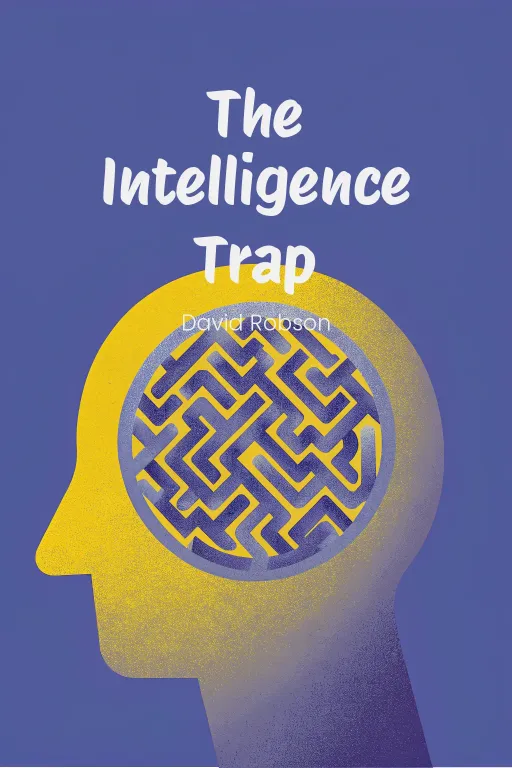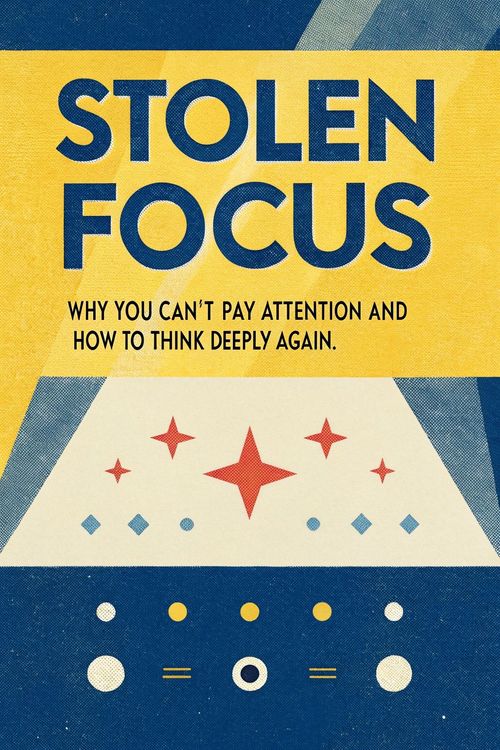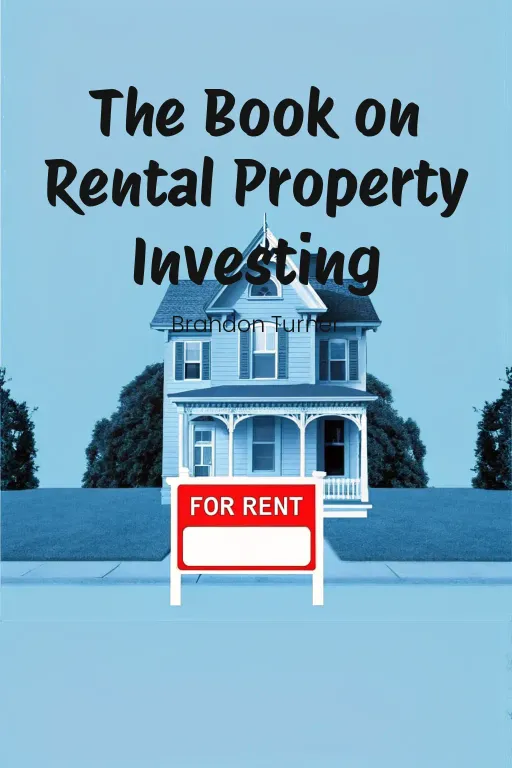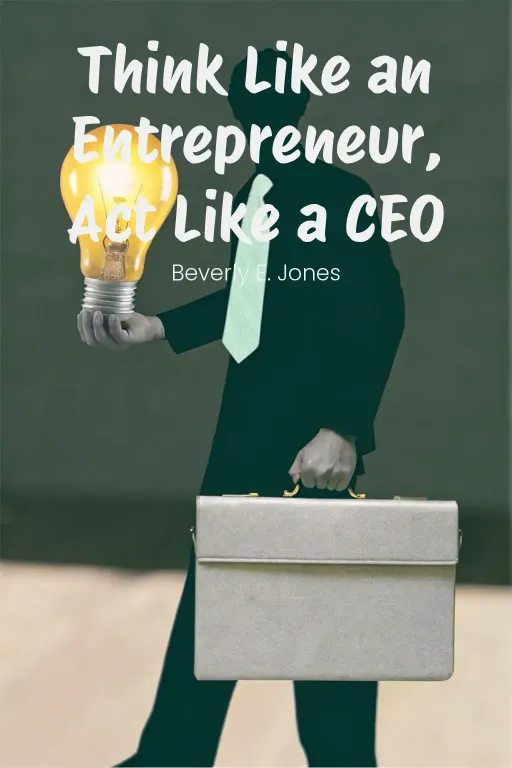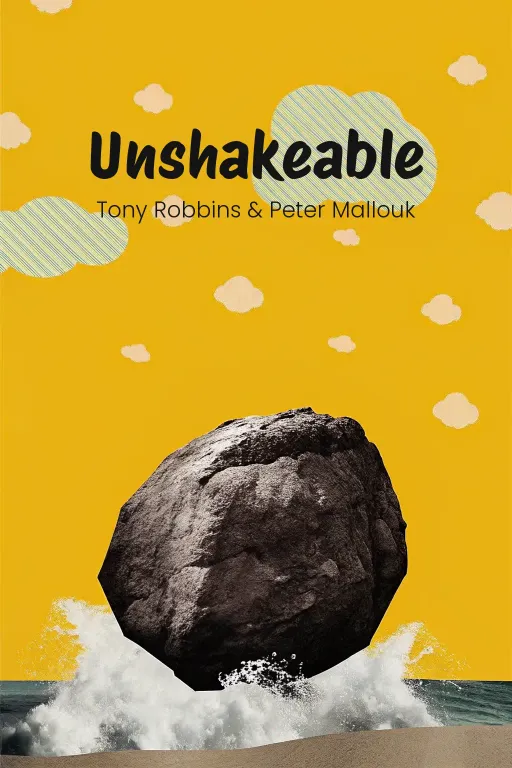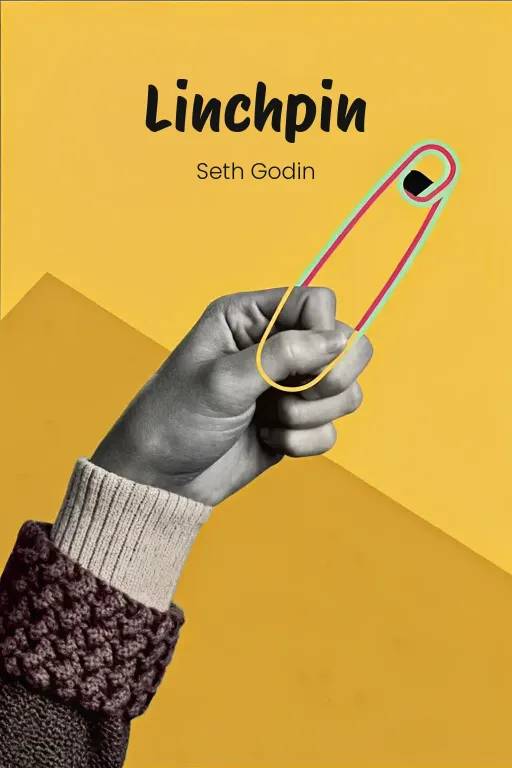
Your "Best Of" Brain: Unleashed!
Podcast by Beta You with Alex and Michelle
Build Your Personal Highlight Reel and Unlock Your Potential
Your "Best Of" Brain: Unleashed!
Part 1
Alex: Hey everyone, welcome back to the podcast! Today, we're diving into something that could really shift how you see yourself—and, honestly, how you live. So, quick question for you: how often do you really zero in on what makes you, you know, “exceptional”, versus getting bogged down in what you think you're missing? Michelle: Hmm, that’s a good one. I'm going to guess most of us are way too busy obsessing over our flaws. Isn't self-criticism practically a national pastime? It's like having a super annoying pop-up ad in your brain. Alex: Right? And that's exactly what Dan Cable's book, Exceptional, is trying to change. It’s not just another generic "think positive" message. Exceptional offers a completely different approach to self-improvement, by focusing on our strengths— those significant, unique qualities that make us, well, exceptional! The book uses personal stories, research-backed insights, and actionable strategies to show you how focusing on these qualities can actually lead to deeper fulfillment, stronger connections, and an even clearer sense of purpose. Michelle: Okay, so instead of dwelling on what's broken, we're... what? Creating a 'Best Of' compilation of ourselves? Alex: Exactly! And that’s really our goal today. We're going to drill down into three key takeaways from the book. First, the real science behind why identifying and focusing on our strengths matters – we’re talking about the psychological and even neurological impact. Then, we’ll tackle how to actually build your own personal highlight reel, creating a portfolio of moments when you were truly, authentically, at your best. And finally, how to weave these strengths into your everyday life for more resilience and authenticity. Michelle: Alright, color me interested. I’m also, naturally, a “little” cynical—it's part of my charm, I think. But seriously, if there’s a way to make all that internal nitpicking work for me, I’m game. Alex: I promise you, Michelle, this is seriously fascinating. Get ready—let’s unlock what makes us exceptional!
Strength-Focused Development
Part 2
Alex: So, picking up on how to ditch that "Spotify playlist of doubt," let's explore the science behind strength-focused development. That's really the core of the book, isn't it? The idea that focusing on what we do well, instead of constantly trying to fix our weaknesses, is not only empowering but truly transformative. Michelle: I'm already sold on this idea. Less effort on fixing and more on... you know, leveraging what we're naturally good at. But why is it that this feels so groundbreaking? Aren't we kind of hardwired to fixate on our flaws, thanks to, like... survival instincts or evolution or something? Alex: You're absolutely right, Michelle, about the evolutionary aspect. Let's get a bit geeky here. When we face criticism or negative feedback, it triggers our amygdala – that part of the brain that deals with threat detection. That, in turn, sets off a fight-or-flight response, releasing cortisol, the stress hormone. It's designed to keep us alive, sure, but in today’s world, constant criticism or self-doubt really just gets in our way. Michelle: So, basically, my brain's using Stone Age tools to cope with 21st-century problems. Got it. Alex: Exactly. And that’s where strength-focused development comes in. Focusing on positive feedback or our strengths bypasses that whole stress response. Instead of cortisol, our brain releases dopamine and serotonin – those feel-good neurotransmitters. This not only makes us happier but it makes us more creative and collaborative. We're actually more willing to take risks. Michelle: So, if I’m following you, shifting the narrative from “What's wrong with me?” to “What's right with me?” kind of rewires the brain? Alex: Precisely! And there’s research to back this up. Dan Cable talks about a study where people reflected on their strengths versus just observing their environment. Those who focused on their strengths reported feeling much more authentic, confident, and resilient. And the kicker? Their performance actually improved, too. It's not just about feeling good, it's about doing better. Michelle: Okay, that's pretty compelling, I have to admit. Were these results a one-off, or can I safely ditch my skepticism now? Alex: It’s consistent, Michelle, even at scale. Look at Wipro, the tech company in India. They did this experiment where they asked new hires to spend some time reflecting on their personal strengths as part of the orientation process. Guess what? Those who did that were 32% less likely to quit within six months, compared to those who didn't. Can you imagine what a difference that makes to employee retention and satisfaction? Michelle: That's actually kind of wild. So, just by recognizing what they're good at, employees felt more connected and loyal? Alex: Exactly! It cultivates a sense of belonging and purpose, which are key motivators in any setting – work, home, or even just personal pursuits. Michelle: Okay, I'll concede that this whole focus-on-strengths idea is starting to sound less like fluffy self-help and more like common sense that we've somehow forgotten. But here's the thing: it's easier said than done. Like, okay, concentrate on strengths—but how? What does that actually look like? Alex: That's a great question, and that's where "highlight reels" come in. Think of a highlight reel as a mental scrapbook of your best moments – times when you felt proud, impactful, or simply at your best. It’s a tool for self-reflection and a life raft when you're drowning in self-doubt. Michelle: So, the mental equivalent of watching your greatest goals from a soccer match? Alex: Exactly! And like a sports highlight reel, building it requires some intentional effort. One technique from the book is reaching out to people in your life – friends, family, colleagues – and asking them for honest feedback about times when you’ve really shined. Michelle: Wait a minute. So, you want me to text my friends and ask, "Hey, remind me why I'm awesome"? That doesn't sound awkward at all. Alex: It can feel vulnerable at first, sure. But the rewards can be incredible. Look at Ron, a student at the University of Michigan. He was hesitant, too. But he finally asked his family and friends for feedback, and they shared heartfelt stories about his curiosity and empathy – qualities he didn’t fully appreciate in himself. That really shifted his whole perspective and boosted his confidence. Michelle: Okay, Ron's story is nice, but does this really work for everyone? I mean, what about those folks who are super hard on themselves? The ones who see their strengths as buried treasure they can’t seem to find? Alex: That is a real challenge, Michelle, and it gets to what Dan Cable calls 'hidden barriers'. One is 'eulogy delay' – that tendency to only recognize someone's positive impact after they're gone. It means a lot of people never hear the encouragement they really deserve while they are here. The other barrier is self-criticism, when we constantly downplay our wins or fixate on our weaknesses. Michelle: Makes sense. I mean, we are our own worst critics, aren’t we? Rebecca’s story comes to mind. Alex: Absolutely. Rebecca had spent years trying to fix her perceived shortcomings, and she always felt like she was coming up short. But when she started hearing affirmations about her strengths and exploring them through art, she blossomed. It was like that shift in focus unlocked her potential. Michelle: So, we’re talking about reframing, not ignoring weaknesses, but not letting them be the only story we tell ourselves? Alex: Exactly! It's about changing how you see yourself and others, which builds resilience and authenticity. As Francesca Gino at Harvard put it, aligning your life with your strengths helps unlock joy and gives you a way to “really” contribute to the world. Michelle: Alright, Alex, I'll admit it: this idea of strength-focused development is starting to sound less like self-help buzz and more like, you know, actual psychological insight. Alex: And that’s just the beginning. When we recognize our strengths, reflect on them in a meaningful way, and use this as a guide amazing transformations can happen. Building that mental highlight reel isn't just about reminiscing about the good times –it’s about shaping how we move forward, with confidence and a real sense of purpose.
Building Your Personal Highlight Reel
Part 3
Alex: So, understanding the science behind focusing on our strengths naturally leads to practical ways to find and document them. That's where creating a “Personal Highlight Reel” comes in—it connects the theory to real-world use. By the end, this will be something more than just an intellectual exercise; it's a tool people can actually use to unlock their potential. Michelle: Okay, a new “Spotify playlist” idea—but one that boosts confidence a bit more. What exactly goes into this highlight reel? I can't just "record" my brain, you know? Alex: Think of it as gathering the moments when you were at your absolute best. It starts with collecting feedback from people around you. That sounds simple, but as Ron's story in the book shows, it can be surprisingly emotional and transformative. Michelle: Remind me about Ron. He was the one who was hesitant to ask for feedback, worried it would seem like he was fishing for compliments, right? Alex: Exactly. Ron, a student, struggled with a lot of self-doubt. He was afraid that reaching out to friends and family to ask for stories about his strengths would seem arrogant. But his girlfriend, Carla, encouraged him, and he was “really” taken aback by the responses. His father, who wasn't usually very expressive, shared how deeply moved he was by Ron's empathy and curiosity—qualities Ron hadn't even realized he had. Those reflections basically undid years of negative self-talk. Michelle: I mean, Ron's story is compelling. But there's definitely an awkward “barrier” here. For someone ready to write their “highlight reel,” how do you get past the weirdness of texting a friend, “Hey, tell me my best moments!" Even if you're as brave as Carla, that's a lot. Alex: That's a fair point, Michelle. First, it's about reframing the request. You're not asking people to shower you with praise; you're inviting them to reflect on times when they saw you at your best. And here's a tip from the book: be specific. Ask something like, "Can you share a time when I had a positive impact on you or a situation?" That makes it feel purposeful, not just about ego. Michelle: Okay, so you're basically crowd-sourcing stories for your mental Hall of Fame. But objectively, how do you go through that feedback without thinking, “This can't be true!” at every kind word? Alex: That's where thematic analysis comes in. You look for patterns, not just individual stories. For example, if three people independently mention that you're great at problem-solving—whether at work, at home, or even settling a dispute—that's a recurring strength. The book suggests using a word cloud: put all the mentioned traits into a visual format and see which ones are most prominent. Michelle: A word cloud—that's a blast from the past! So, if you spot those recurring themes, they're like the greatest hits of who you are? Alex: Precisely! Those hits become the core of your highlight reel. And if you want to go further, creative expression helps. Some people make collages or storyboards with images, quotes, or even keepsakes related to their best moments. It makes the positive memories more tangible and accessible. Michelle: This arts-and-crafts approach is interesting, but let's be real—what's the “real” value of this scrapbook of highlight moments? You celebrate yourself, maybe, but does it actually lead to personal growth? Alex: It absolutely does, Michelle. Highlight reels can “really” help combat self-doubt, which is related to imposter syndrome for so many. Take Rebecca's story from the book. She was in an environment where her flaws were constantly pointed out—years of working in a clinical setting had eroded her confidence. But when she joined a theater group and people started celebrating her creative abilities, everything changed. Those affirmations helped her embrace her strengths, and she rediscovered her spark. Michelle: So, your highlight reel reminds you: “Even if you're in a tough spot, you've thrived before—and you'll do it again.” Alex: Exactly. It's not just a document to look at, but a constant reminder of your ability to make a meaningful impact. It changes how you see yourself, helping you face challenges with more confidence. And beyond that, these insights can be useful professionally too. Michelle: You mean interviews, reviews, pitches—when you need to tell someone why they should choose you. Alex: Exactly. These strengths-based stories give you clarity about what you bring to the table as a leader, team player, or problem-solver. Imagine how much better it is to say, “Here's an example of a challenge I overcame using my unique strengths,” rather than just saying you're hardworking. Michelle: Alright, Alex, I'll admit it: creating a highlight reel is more than just flattering yourself. There's a structure here—a process to “really” understand yourself. Alex: Yes! It combines science, creativity, and courage to change how we see ourselves. When we truly believe those affirming stories—from Ron, Rebecca, or our own lives—we build a foundation for lasting confidence and growth.
Applying Strengths in Daily Life
Part 4
Alex: So, once you really know your strengths, the next step is to actively use them in your daily life for ongoing growth, both at work and in your personal life. It's about applying your strengths every day—taking what you know about yourself and actually making it part of your routine. Michelle: Okay, so we're talking about turning self-awareness into actual, real-world results. Sounds good. But how does this actually work when you're staring down a Monday morning filled with meetings? Alex: Great question. That's where "life crafting" and "work crafting" come in. It's about intentionally making small adjustments to align your strengths with what you do every day, whether it's at home or at work. It's not about completely changing your life, but about bringing more of your natural talents into everything. Michelle: So, little changes, not a complete overhaul? That sounds way more doable. Alex: Exactly. Take Antônia, for example, a consultant from São Paulo. She spent years working hard, focusing on her career. But she lost touch with her love for dance and her ability to connect with people. She felt burned out, even though she was successful. Michelle: Right, because being successful doesn't always mean being happy. So what did she do? Quit her job and become a dancer? Alex: Not exactly, but she made small adjustments. She started taking a dance class each week and made time to see friends. These were small, regular steps that connected her to her strengths like joy and connecting with others. Michelle: And the world didn't end because she took a few hours for herself? Amazing. Alex: Actually, it was the opposite. These changes helped her recharge. The energy she got from dance and her friends actually improved her work, making her more focused. Antônia's story is a perfect example of life crafting—matching your daily schedule with what makes you happy and uses your strengths. Michelle: Okay, so this life crafting sounds great. But what about someone like Charles, who is unhappy with his job? Some people just can't leave work to take a dance class. Alex: That’s where work crafting comes in. Charles's story shows how to tweak your current job to better fit your strengths. He was a sales manager in the UK beer industry and at first, he was great at building relationships with customers—that was his strength. Michelle: Let me guess—he got a promotion and suddenly was stuck with spreadsheets all day? Alex: Exactly! The parts of his job that he loved, like visiting clients, were replaced by paperwork. Instead of giving up, Charles took action. He decided to spend a little time each week visiting customers, not to sell to them, but to learn about their challenges. Michelle: Wait a minute. He changed his job without actually changing it? He just started doing what he was good at? Alex: Pretty much. By focusing on building relationships, Charles found joy in his work again, and his insights helped the company improve. His client visits influenced how he planned meetings and strategies, making everything more effective. Michelle: That's actually pretty smart. He found a way to enjoy his job again without quitting. So, work crafting is about using your strengths even if your job doesn't always let you? Alex: Exactly, Michelle. It’s about finding tasks that give you energy instead of draining you. It’s about making small, strategic changes to align with your strengths. Michelle: And how do people even start? If someone’s job feels completely wrong, where do they begin the crafting process? Alex: That's where tools such as a Strength Audit come in. Take a look at your life and ask yourself questions like, "When do I feel most energetic?" or "What tasks make me lose track of time?" You're basically creating a map of your strengths and seeing how they fit into your current routine. Michelle: Makes sense. Are there any other tools or ways for people to stay on track? Alex: Absolutely. One practical method is to set small goals. For example, Charles didn’t change his job overnight; he started by visiting one client a week. Similarly, Antônia didn’t immediately fill her week with activities; she started with what she could handle. Small, consistent changes are key. Michelle: Slow and steady, huh? Alex: Exactly. Another great method is journaling. Writing down your thoughts helps you track which activities make you feel energized and which ones drain you. This clarifies what to repeat and what to change. Michelle: And what about people who have trouble thinking about themselves? What if they overthink or doubt their strengths? Alex: A helpful technique is to ask for feedback. Ask friends or colleagues what strengths they see in you, like how Ron’s family shared stories he had never considered. Often, others can see strengths that we don’t. Michelle: And this is where the eulogy delay comes back, right? People always have nice things to say when it’s too late to hear them. Alex: Exactly, which is why you should make the effort now. Imagine how powerful it would be to receive positive feedback from people who care about you while you’re alive. That’s transformative. Michelle: Alright, I’ll admit it—steps like the Strength Audit and small adjustments sound less scary than changing everything. And the potential for good results? Pretty convincing. Alex: That’s the beauty of life and work crafting: it’s easy to approach, intentional, and based on who you already are.
Conclusion
Part 5
Alex: Okay, let's wrap things up. Today, we dove deep into this idea of being “Exceptional”—how focusing on what you're good at, rather than stressing about your weaknesses, is key to really unlocking your potential. We talked about building a personal highlight reel to help you recognize those unique capabilities, you know, things that are backed by feedback and confirmed by recurring patterns. And we saw how putting those strengths to work through life and job crafting can lead to more fulfillment and resilience. Look at Ron changing his self-perception, Antônia rediscovering her energy, or Charles finding his passion again through meaningful connections! Michelle: It's a practical shift, isn't it? Less about completely changing who you are and more about highlighting the good stuff that's already there. And honestly, at the start of this, I was a bit skeptical, but I see the value now in swapping out that self-criticism for a bit of clarity. This highlight reel isn't just some feel-good exercise; it's a blueprint for aligning your strengths with how you actually live and work. So how would someone apply this to modern urban life, where everything seems so fast-paced and competitive? Alex: Great question, Michelle. I think if there's one thing I want our listeners to take away, it's to start small. You definitely don’t need to overhaul your entire life right away. Maybe ask a friend or colleague to share a meaningful moment they had with you, identify a strength you're genuinely proud of, or find one small task you can tweak to feel more aligned with your strengths. They might seem like tiny steps, but trust me, they can create a real ripple effect. Michelle: Right, small hinges swing big doors, as they say. And hey, if all of that sounds a little intimidating, remember this: there's actual science—and tons of real-life stories—to support this. Focusing on your strengths doesn't just make life better; it makes it more sustainable in the long run. It's not a sprint, it's a marathon. So, start putting together that highlight reel. You might be surprised—your greatest hits might be closer than you think. And Alex, have you successfully applied these lessons about focusing on strengths to your own life? Alex: Absolutely. I try to consciously recognize where I shine, embrace it, and amplify it! Remember, everyone, you're already exceptional; it's about recognizing, embracing, and amplifying what makes you shine. Until next time, keep crafting your life with intention and leaning into those strengths.


